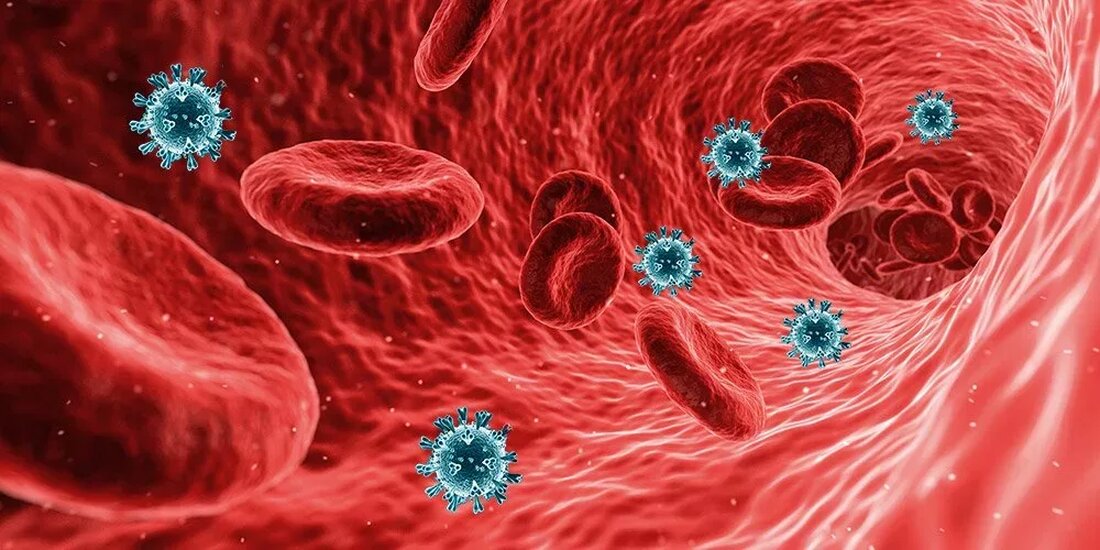Any systemic effects of COVID-19
All systemic effects of COVID-19 After just a few days of caring for critically ill COVID-19 patients at the start of the outbreak in New York City, Dr. Aakriti Gupta that this was much more than a respiratory illness. "On the front lines from the beginning..." "I was on the front lines from the beginning. I observed that patients' blood was often clotted, they had high blood sugar even if they didn't have diabetes, and many had compromised hearts and kidneys," says Gupta, one of the first Columbia cardiologists assigned to the COVID intensive care units at Columbia's Irving Medical Center University. …

Any systemic effects of COVID-19
All systemic effects of COVID-19
After just a few days of caring for critically ill COVID-19 patients at the start of the outbreak in New York City, Dr. Aakriti Gupta that this was much more than a respiratory illness.
“At the forefront from the start…”
"I was on the front lines from the beginning. I observed that patients' blood was often clotted, they had high blood sugar even if they did not have diabetes, and many had compromised hearts and kidneys," says Gupta, one of the first Columbia cardiologists assigned to the COVID intensive care units at Columbia University Irving Medical Center.
In early March, there wasn't much clinical guidance on the non-respiratory effects of COVID-19, so Gupta decided to combine the results of studies that were just beginning to appear in the literature with those of doctors.
Gupta, along with senior author Donald Landry, MD, PhD, chair of medicine at Columbia University's Vagelos College of Physicians and Surgeons, organized senior co-authors, and Gupta along with two other colleagues, Mahesh Madhavan, MD, a cardiologist at CUIMC, and Dr. Kartik Sehgal, a hematology/oncology fellow at Beth Israel Deaconess Medical Center/Harvard Medical School, mobilized clinicians at Columbia, Harvard, Yale, and Mount Sinai Hospital, among others, to review the latest evidence on COVID-19. 19 effects on organ systems outside the lungs and provide clinical guidance for physicians.
Their review - the first comprehensive review of the impact of COVID-19 on all affected organs outside the lungs - was published today in Nature Medicine.
“Doctors need to think of COVID-19 as a multisystem disease,” says Gupta. “There is a lot of news about clotting, but it is also important to understand that a significant proportion of these patients suffer from kidney, heart and brain damage and doctors must treat these conditions along with the respiratory disease.”
Blood clots, inflammation and immune system in overdrive
“There were many thrombotic complications in the first weeks of the pandemic, more than we expected based on experience with other viral diseases,” says Sehgal, “and they can have profound consequences for the patient.”
Scientists believe these clotting complications result from the virus attacking cells lining blood vessels. When the virus attacks blood vessel cells, inflammation increases and blood begins to form large and small clots. These blood clots can spread throughout the body, destroying organs and perpetuating a vicious cycle of thromboinflammation.
To combat clotting and its harmful effects, clinicians at Columbia, many of whom are co-authors of this review, are conducting a randomized clinical trial to examine the optimal dose and timing of anticoagulation medications in critically ill patients with COVID-19.
The uncured inflammation can also overstimulate the immune system, and although doctors initially balked at using steroids to suppress the immune system globally, a recent clinical trial found that at least one steroid, dexamethasone, reduced deaths in ventilated patients by a third. Randomized clinical trials are underway to investigate specific components of thromboinflammation and the immune system such as interleukin-6 signaling.
"Scientists around the world are working at unprecedented speed to understand how this virus deliberately abuses the normally protective biological mechanisms. We hope that this will contribute to the development of more effective, precise and safe treatments for COVID-19 in the near future," says Sehgal.
Straight to the heart
Clots can cause heart attacks, but the virus attacks the heart in other ways, an author says.
“The mechanism of cardiac damage is currently unclear as the virus has not been frequently isolated from cardiac tissue in autopsy cases,” says Gupta.
Heart muscle can be damaged by systemic inflammation and the accompanying release of cytokines, a flood of immune cells that normally clears up infected cells but can spiral out of control in severe COVID-19 cases.
Despite the extent of the heart damage, doctors were unable to use the diagnostic and therapeutic strategies, including cardiac biopsies and cardiac catheterizations, that they would normally use in the early stages of the pandemic due to the need to protect staff and patients from virus transmission. This has changed as disease prevalence has declined in New York City.
Kidney failure
Another surprising finding was the high proportion of COVID-19 patients in the intensive care unit with acute kidney injury.
The ACE2 receptor, which is used by the virus to enter cells, is found in high levels in the kidney and could likely be responsible for the kidney damage. Studies in China reported kidney complications, but in New York City, doctors saw kidney failure in up to 50% of intensive care unit patients.
"About 5 to 10% of patients required dialysis. That's a very high number," says Gupta.
Data on long-term kidney damage are currently lacking, but a significant proportion of patients will likely continue to require permanent dialysis.
“Future studies of patients who experienced complications from COVID-19 during hospitalization will be critical,” notes Madhavan.
Neurological effects
Neurological symptoms such as headaches, dizziness, fatigue and loss of smell can occur in about a third of patients.
In addition, strokes due to blood clots occur in up to 6% of severe cases and delirium in 8 to 9% of cases.
"COVID-19 patients can be intubated for two to three weeks. A quarter require ventilators for 30 or more days," says Gupta.
"These are very long intubations, and patients require a lot of sedation. 'ICU delirium' was a known condition before COVID, and the hallucinations may be less an effect of the virus and more an effect of the prolonged sedation." “
“This virus is unusual and it is difficult not to step back and not be impressed by how many manifestations it has on the human body,” says Madhavan.
"Despite training as an internist as a subspecialist, our job is to keep all organ systems in mind when caring for the patients in front of us. We hope our reviews, observations and recommendations can help other clinicians as cases are currently increasing."

 Suche
Suche
 Mein Konto
Mein Konto
